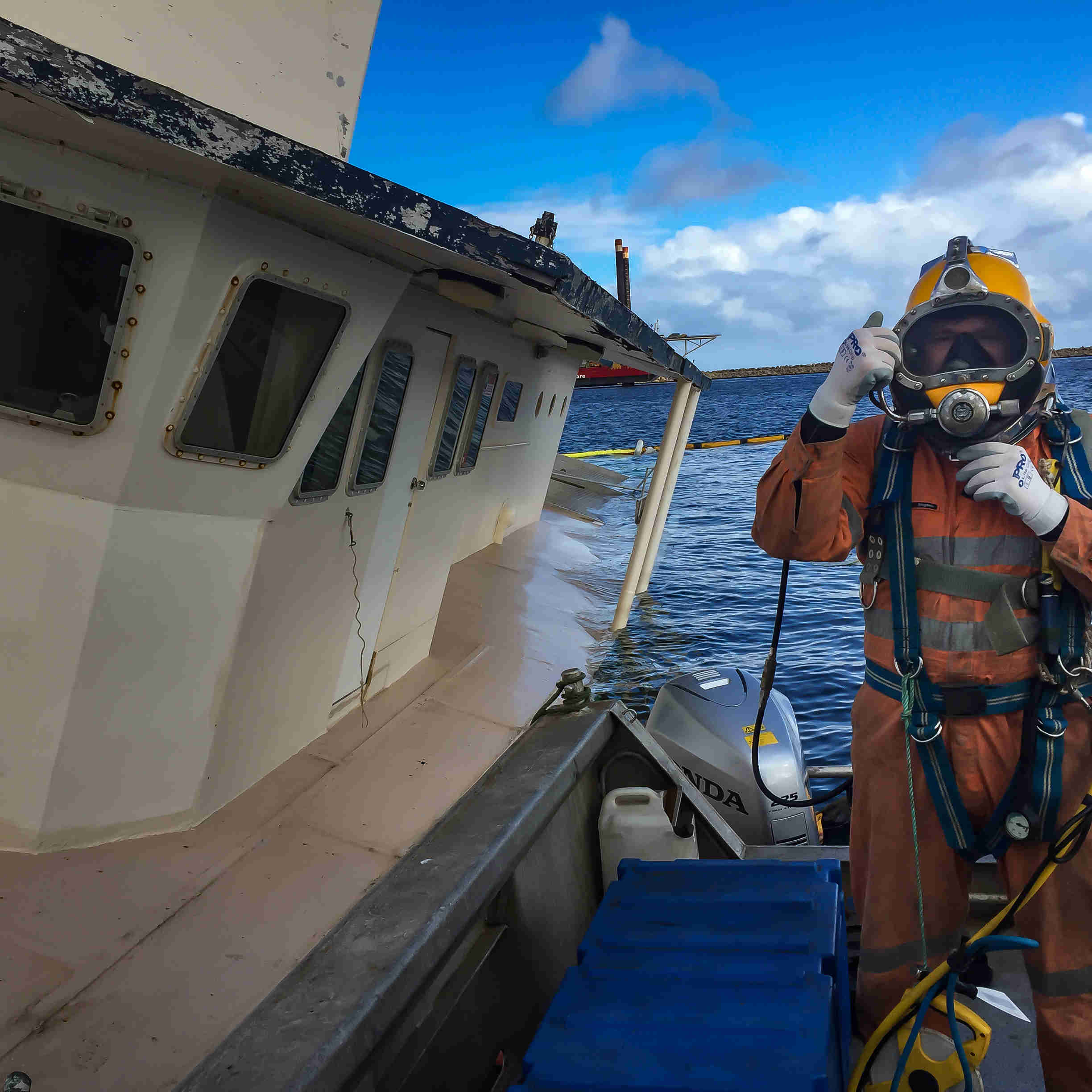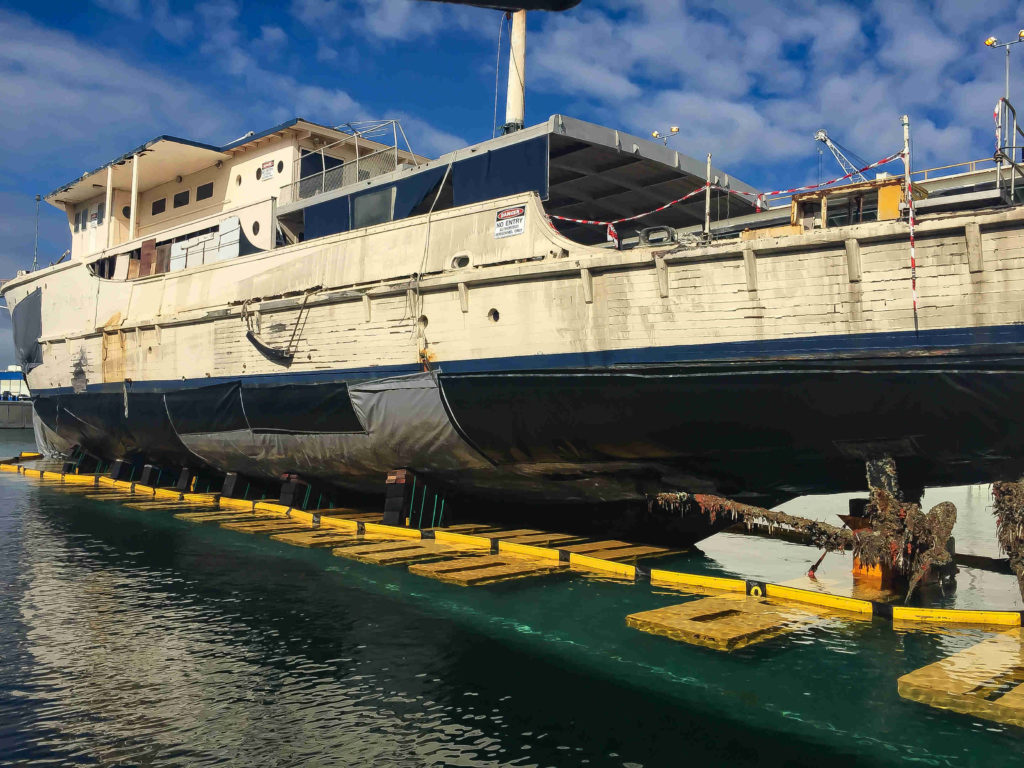How Marine Salvage Saves Wrecked Ships
Maritime disasters can range from minor collisions to catastrophic events. Fortunately, marine salvage has become an established means of salvaging ships in distress, serving as a lifeline for crews and vessels alike. Marine salvage https://www.franmarine.com.au/salvage/ is the process of rescuing a wrecked ship and its cargo, returning it to useable condition or disposing of it safely. This process requires specialized skills, equipment, and knowledge to ensure the safety of both the vessel and the personnel involved.

What is Marine Salvage?
Marine salvage is the process of saving a ship, its cargo, and other property in danger at sea. It often involves interventions to prevent further damage or harm to people or other vessels. Salvage operations must be conducted with skill and safety in mind as they are hazardous by nature due to the unpredictable environment of open waters.
In some cases, marine salvage can involve rescuing persons from sinking ships, vessels that have been stranded on rocks, fires on ships, and more. The first priority during these operations is always the safety of the personnel involved as well as those trapped onboard. Involved parties will assess the situation based on a variety of factors including immediate threats and potential hazards such as bad weather or rough seas. The goal is to create efficient strategies that ensure successful outcomes for all parties involved while avoiding any further damage or loss of life.
Why Should Wrecked Ships Be Used?
The use of wrecked ships for marine salvage is a common practice in the shipping industry and can be beneficial to many. Salvaging materials from a wreck can provide valuable scrap metal, wood, and other supplies that can be used to build new vessels or repair damaged ones. In addition, salvaged supplies such as sails, rigging, or even entire ships may provide components that would otherwise be too expensive or difficult to obtain from other sources.
The benefits of salvaging wrecked ships do not end there; by recovering what is left behind after an accident or storm at sea, we are able to gain insight into how these events occur. This information could help us better understand the risks associated with ocean travel and enable us to improve safety measures in the future.
Risks to Salvage Teams
Salvage teams take on a great responsibility when they agree to a marine salvage job. Salvage teams risk their lives to recover ships and other items that have been damaged or sunken at sea. Working in the unpredictable and dangerous conditions of the ocean, these daring individuals must face many risks while out on a mission.
The most common danger is rough weather conditions, which can bring huge waves, strong winds, and thunderstorms that can easily turn into a disaster in such an environment. In addition, foreign objects such as icebergs, debris, and cargo containers can create unexpected hazards for salvage workers by blocking their path or damaging their equipment. If the team members are not properly prepared with an emergency plan and all necessary safety gear, things could quickly spiral out of control if any of these threats appear during the mission.
Challenges of Salvage Operations
The risks and complexities of marine salvage operations have increased in recent years, as vessels have become larger and more sophisticated. Salvage operations pose unique challenges to those involved, from the salvors who are responsible for recovering the vessel or goods to the marine insurers who must determine if a vessel is worth saving.
Salvage operations can be extremely difficult due to the possibility of hazardous goods on board, harsh weather conditions, and unpredictable sea depths that often require damage assessment before any work can begin. In addition, salvors must assess how much time they need to complete the job while ensuring safety protocols are followed at all times. This means they must take into account factors such as weather forecasts and tides which may affect their progress.
Insurers must closely monitor salvage operations to ensure that no injuries occur during the process and that resources are used efficiently.

Benefits of Marine Salvage
Marine salvage is a specialized field of maritime law that deals with the recovery and rescue of vessels and cargo at sea. It is a complex process, but one that offers many valuable benefits.
Firstly, marine salvage can help to protect lives at sea when vessels are in distress or damaged. Salvors use their knowledge and expertise to provide assistance in order to save lives and property. In some cases, they may even be able to prevent further pollution from occurring by efficiently managing the situation on-site.
Additionally, salvors offer financial rewards for successful salvages which helps them cover their costs such as labor, equipment rental fees, and other expenses incurred during the operation. This helps incentivize people with specialized skills and equipment who are willing to take on these risky operations for assisting ships in distress or recovering items from wrecks so that less damage occurs overall.
Conclusion
Marine salvage is a critical process in the maritime industry that helps to save ships, cargo, and lives. The process involves a team of highly trained professionals to assess the risk, secure the wrecked vessel, remove any hazardous materials, refloat it and transport it back safely. In some cases, new technology can help make the entire process faster and safer. Marine salvage is a critical component of the maritime industry that should be taken seriously by all involved.
